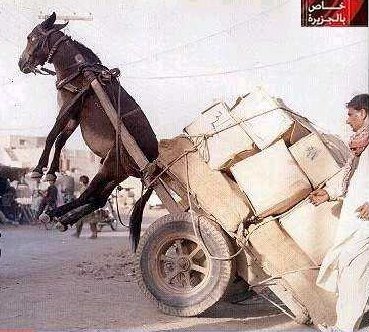A balanced approach

"Chess is 99% tactics"
As you can read in the comments of my previous post this saying is busted, even at patzer level. I suspect you already guessed that
Since this hypothesis was the basis to my balanced approach to chess (99% tactical exercises), it is clear that I have to find new ways.
Stategy is the new Magic Word.
Can we find a few criteria for the new approach?
If I have this problem MDLM must have had it too. And he solved it. So a new approach has to be consistent with this.
Further analised Loomis the position of the previous post and he had some good idea's about it. A new approach must lead to the generation of such idea's within a minute or 3 - 10.
Time for some musings.
MDLM has mentioned how he studied other areas of chess for YEARS before he decided to go hardcore with tactics. These studies most have been very benificial when combined with the last piece of the puzzle: namely tactics.
ReplyDeleteThis study would have given him understanding of strategy (I have done the same). But it is hard to imagine that he converted that to skill before he started with his tactical program. So SOMETHING during his last two years in chess has transformed his strategical understanding in skill. Was it his thoughtprocess? Was it the fact that he played 120 games a year?
ReplyDeleteI look at it like this: although focusing almost exclusively on tactics isn't very balanced, it is fundamental, and very straightforward. the bread and butter, the foundation everything else will be built on. and I think my energy will last better focusing on one area at a time, rather than trying to do a little bit of everything. more balanced approach would perhaps give me better ratings in the short run, as there will be a masking effect caused by my weaker abilities, but honing tactical skills way ahead of my other abilities will build up potential for future. and then, drilling my endgames or any other weak skill to the same level, with the same intensity, will unleash that potential.
ReplyDeleteinteresting post. Perhaps we should look at winning chess not as tactics or strategy but the ability to better ones position at least not make it worst. So perhaps there should be a ct=art set which has positions that have both tactical aims and strategic aims. now the question is Is repetitive pattern recognition training effective in studying strategy as well. Is it better to do Stoyko diagram exercizes or study master games. A trouble with pattern recognition is if you don't recognize something worth doing where do you go? i have a book called chess master at any age, the author saw chess mastery as being made up of 5 components and a player plays caps at the level of the lowest score in these 5 components.
ReplyDeleteWorm,
ReplyDeleteI have 3.5 years tactical training under the belt. I'm uncomparable better in tactics now.
Since I decided to stop at 70,000 it actually felt like a relief. I never realized that before. That's a clear sign that it's time for a change. I keep Slowtempo in the air though, but at a slower pace.
I have found a very evident impediment that hinders my play, so its logical to work on that.
Today I did 195 strategical problems at PCT, so the struggle continues anyhow.
Tak,
ReplyDeletePCT has 720 tactical problems that are pretty straight forward, so that's what I'm doing.
I just can't imagine that massive repetition wouldn't work with strategical patterns. But of course I will experiment with different approaches.
Which 5 components make up chess mastery according your author?
I had to break out my book.
ReplyDelete1. Patterns (rapidly accessable facts/images)
2. Apropos (ability to project positions)-measure of speed and accuracy of calculation
3.Move Selection Method-methodology to select moves (as well as blindspots such as certain types of blunders)
4.Attitude/objectivity
5.Mental Clock Rate -Speed at which we can calculate as well as the ease we can draw up things from memory.
He has a long chapter discribing this more in detail.
yea, I know what you mean, I feel the strain too. I try to be very careful not to over do it myself, as I realize it'll be very hard to do anything if I burn out on tactics. the 1600 is so close I think it'll be easy to stay motivated up to that. but after crossing it, I might very well lose my drive, we'll see.
ReplyDeletebtw, 'xparoni' at 1591 with 83.5% is a finnish player rated around 2150 fide, so we are pretty far already. (although that also shows how much the weaknesses in other areas keep us down.)